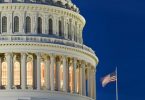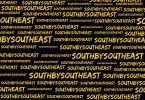Demand far outstrips the limited supply of product. While additional growing capacity will come online in the coming months, supply could remain short of demand until next year.
“Walking into a cannabis store for the first time is exciting,” said Tom Adams, managing director for BDS Analytics, a research firm that tracks the marijuana industry. “That wears off real quick, and they start running the numbers in their heads, and demand drops off.”
Adam Bierman, CEO of MedMen, a Los Angeles-based company that operates dispensaries in Evanston and Oak Park, says taxes put more pressure on the shopping experience.
“If stores operate the way it was the first two weeks, it will be a huge problem,” he said. “If the experience is way better, it’s something people will get beyond and pay up to buy.”
Adams says higher taxes allow the illegal market—which charges no taxes, of course—to remain more intact.
BDS estimates the illegal market still accounts for 51 percent of total marijuana sales in Washington state, compared with 34 percent in Colorado, where taxes are about 25 percent.
Michigan, which launched recreational sales on Dec. 1, charges just 16 percent.
“Tax is one of the factors that have a major impact on how much a legal market can grow,” Adams said.
Because there’s such a shortage of cannabis—a shortage that be solved anytime soon—the state may not see the impact of the looming tax hike for quite a while.
Legislators warned a few months ago that tax rates could cut into weed sales. But the local income was a selling point of legalization in a state where every level of government is struggling to make ends meet.
The state expects to get about $57 million in tax revenue this year from cannabis sales, with the total growing to $141 million for the fiscal year that begins July 1. The state hopes to hit $376 million within four years. Anything that crimps sales would put the revenue target in jeopardy.







